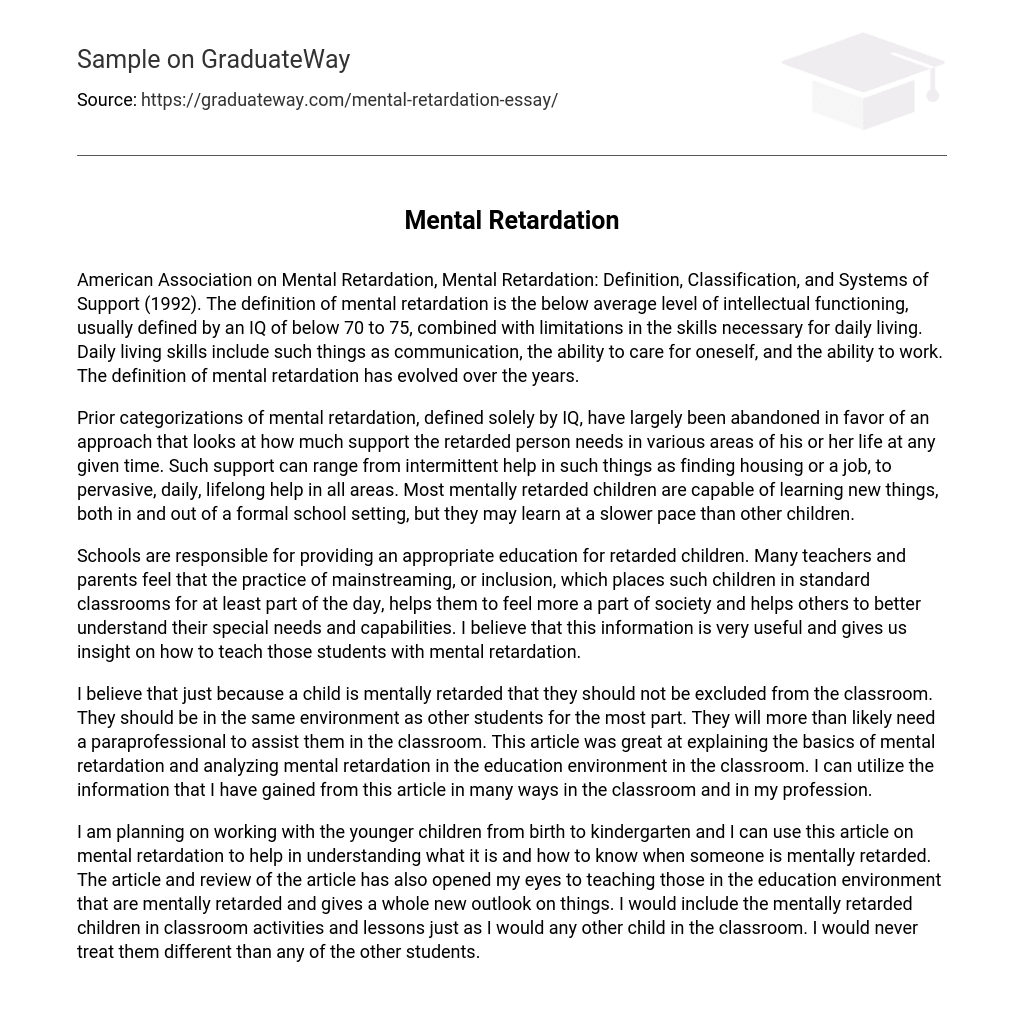The definition of mental retardation is the below average level of intellectual functioning, usually defined by an IQ of below 70 to 75, combined with limitations in the skills necessary for daily living. Daily living skills include such things as communication, the ability to care for oneself, and the ability to work. The definition of mental retardation has evolved over the years.
Prior categorizations of mental retardation, defined solely by IQ, have largely been abandoned in favor of an approach that looks at how much support the retarded person needs in various areas of his or her life at any given time. Such support can range from intermittent help in such things as finding housing or a job, to pervasive, daily, lifelong help in all areas. Most mentally retarded children are capable of learning new things, both in and out of a formal school setting, but they may learn at a slower pace than other children.
Schools are responsible for providing an appropriate education for retarded children. Many teachers and parents feel that the practice of mainstreaming, or inclusion, which places such children in standard classrooms for at least part of the day, helps them to feel more a part of society and helps others to better understand their special needs and capabilities. I believe that this information is very useful and gives us insight on how to teach those students with mental retardation.
I believe that just because a child is mentally retarded that they should not be excluded from the classroom. They should be in the same environment as other students for the most part. They will more than likely need a paraprofessional to assist them in the classroom. This article was great at explaining the basics of mental retardation and analyzing mental retardation in the education environment in the classroom. I can utilize the information that I have gained from this article in many ways in the classroom and in my profession.
I am planning on working with the younger children from birth to kindergarten and I can use this article on mental retardation to help in understanding what it is and how to know when someone is mentally retarded. The article and review of the article has also opened my eyes to teaching those in the education environment that are mentally retarded and gives a whole new outlook on things. I would include the mentally retarded children in classroom activities and lessons just as I would any other child in the classroom. I would never treat them different than any of the other students.





